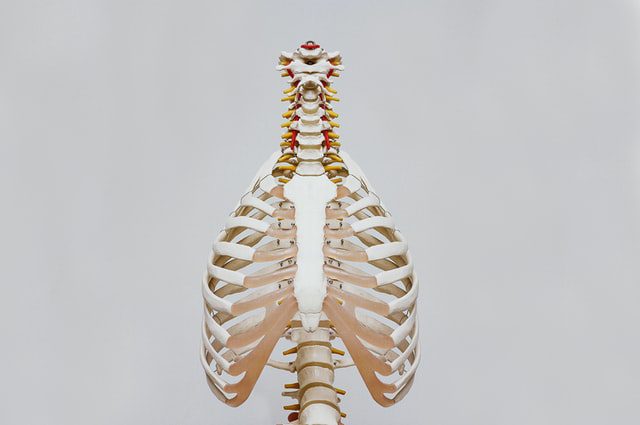Overview Of Fractured Rib
A rib fracture is a crack or breaks in one or more of your rib bones.
Your ribs are the bones in your chest that wrap around your upper body. They connect your breastbone to your spine.
The risk of developing a rib fracture after an injury increases with age.
A rib fracture can be very painful because your ribs move when you breathe, cough, and move your upper body.
The ribs in the middle of the chest are the ones that break most often.
Rib fractures often occur with other chest and organ injuries. So, your health care providers will also check to see if you have any other injuries.
Commonly Associated With
Broken rib – aftercare
What To Expect With A Fractured Rib
Healing takes at least 6 weeks.
If you injure other body organs, you may need to stay in the hospital. Otherwise, you can heal at home. Most people with broken ribs do not need surgery.
In the emergency room, you may have received a strong medicine (such as a nerve block or narcotics) if you were in severe pain.
You will not have a belt or a bandage around your chest because these would keep your ribs from moving when you breathe or cough. This may lead to lung infection (pneumonia).
Pain Relief
Apply an ice pack 20 minutes of every hour you are awake for the first 2 days, then 10 to 20 minutes 3 times daily as needed to reduce pain and swelling. Wrap the ice pack in a cloth before applying it to the fractured rib.
You may need prescription pain medicines (narcotics) to keep your pain under control while your bones heal.
- Take these medicines on the schedule your provider prescribed.
- Do not drink alcohol, drive, or operate heavy machinery while you are taking these medicines.
- To avoid becoming constipated, drink more fluids, eat high-fiber foods, and use stool softeners.
- To avoid nausea or vomiting, try taking your pain medicines with food.
If your pain is not severe, you can use ibuprofen (Advil, Motrin) or naproxen (Aleve, Naprosyn). You can buy these pain medicines at the store.
- These medicines should be avoided for the first 24 hours after your injury since they may lead to bleeding.
- Talk with your provider before using these medicines if you have heart disease, high blood pressure, kidney disease, liver disease, or have had stomach ulcers or internal bleeding in the past.
- Do not take more than the amount recommended on the bottle or by your provider.
Acetaminophen (Tylenol) may also be used for fractured rib pain by most people. If you have liver disease talk with your provider before taking this medicine.
Tell your provider about any other medicines you are taking as drug interactions may occur.
Activity
To help prevent a collapsed lung or lung infection, do slow deep-breathing and gentle coughing exercises every 2 hours. Holding a pillow or blanket against your injured rib can make these less painful. You may need to take your pain medicine first. Your provider may tell you to use a device called a spirometer to help with the breathing exercises. These exercises help prevent partial lung collapse and pneumonia.
It is important to stay active. Do not rest in bed all day.
Your provider will talk with you about when you can return to:
- Your everyday activities
- Work, which will depend on the type of job you have
- Sports or other high impact activity
While you heal, avoid movements that put painful pressure on your ribs. These include doing crunches and pushing, pulling, or lifting heavy objects.
Follow-Up After A Fractured Rib
Your provider will make sure you are doing your exercises and that your pain is under control so that you can be active.
There is usually no need for taking x-rays as you heal unless you develop fever, cough, increasing pain, or difficulty breathing.
Outlook (Prognosis)
Most individuals with isolated rib fractures will recover without serious side effects. If other organs have also been injured, however, recovery will depend on the extent of those injuries and underlying medical conditions.
When To Call The Doctor
Call your doctor if you have:
- Pain that does not allow deep breathing or coughing despite using pain relievers
- Fever
- Cough or increase in mucus that you cough up, especially if bloody
- Shortness of breath
- Side effects of pain medications such as nausea, vomiting, or constipation, or allergic reactions, such as skin rashes, facial swelling, or difficulty breathing
People with asthma or emphysema are at increased risk of developing complications from a rib fracture, such as breathing problems or infections.



